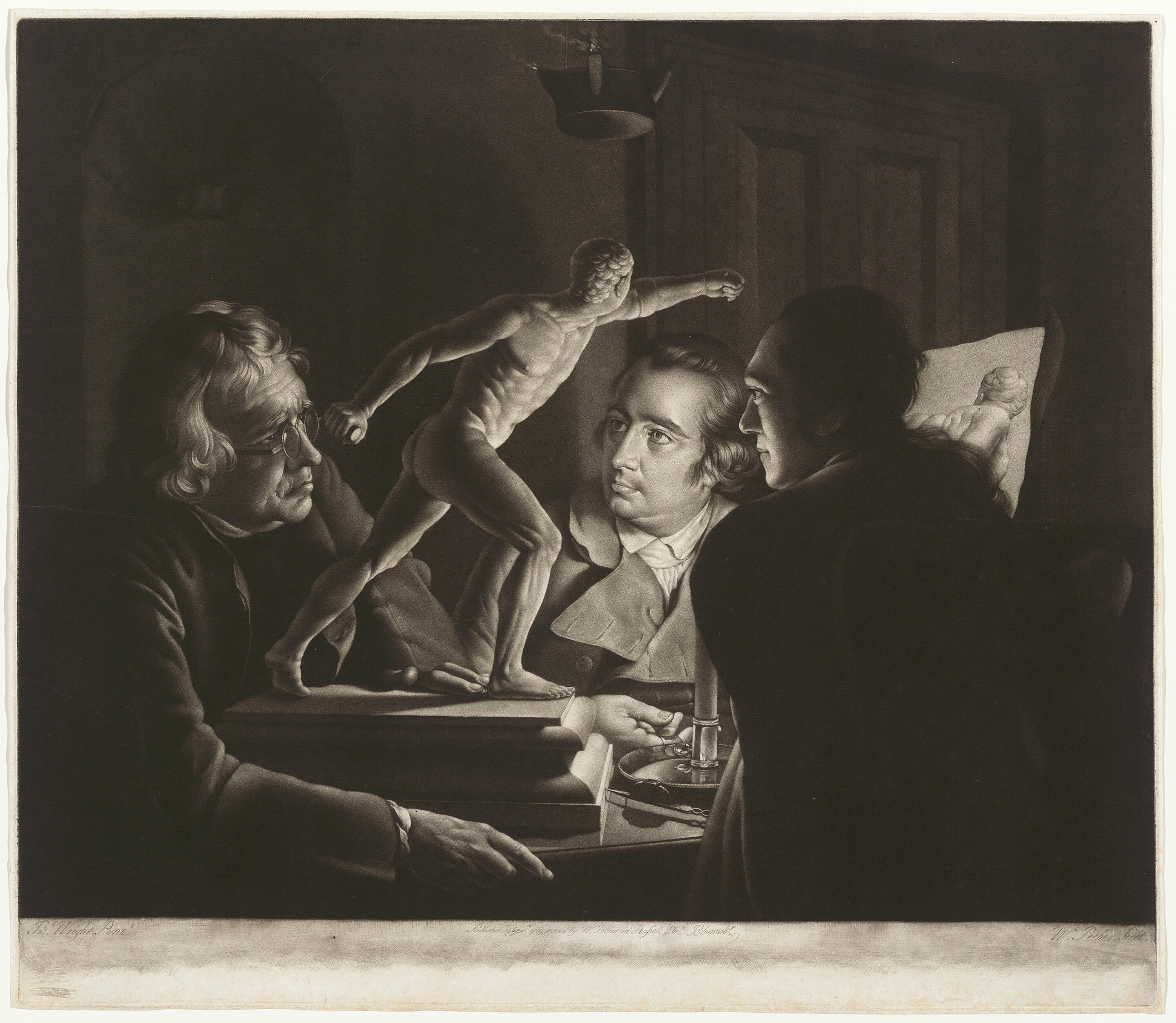Erratics

William Pether after Joseph Wright of Derby:
Three Persons Viewing the Gladiator by Candlelight
(1769)
" … evidence of history having happened and still present …"
What makes these stories a collected work? What unifying theme do they exhibit? Publishers seem to love to ask authors these sorts of questions, for they seek a discernible purpose for publishing something. One does not properly throw any odd old bunch of pieces together and label them A Work. Consequently, I choose a theme, this series' theme being Publishing, then head out into the wilderness to see what startles up out of the underbrush. I do not work from an outline, which I'm convinced only ever exists in fifth-grade writing teachers' fantasies. I try to keep my wits about me and observe what I do, and these observations become the grist for most of the resulting stories. This series could not exist without the provocation of the overarching theme and my own continuing observing. Still, the resulting series sure does seem awful various from a publisher's perspective, Erratic.
What do I look for when I'm so aimlessly wandering through my writing wilderness? My eye seems most often drawn toward Erratics, events that seem emblematic of something different happening. Like Glacial Erratics, boulders left by receding glaciers throughout my home country, these stories, hopefully, exhibit a different geology than the surrounding native rock. Here, near the Center of the Universe, basalt might be the most common kind of stone I see, that and pebbles worn smooth by eons of stream action. Here and there, though, one finds an out-of-place boulder, a granite monster, or something similar. It stands as proof that history once happened there and isn't ever going anywhere else. Landowners mostly work around the Erratics they find, considering them more feature than problem. They're generally just too massive even to consider doing anything otherwise. They encourage acceptance.
The unifying theme of this and all my other collections of stories, then, turns out to be their differences. They do not, other than often stretching to seem to fit within the series' overarching theme, carry very much of anything in common other than their apparently erratic presence. Yesterday's story spoke of SwimmingLessons, while two days' before that centered around strategically rotting fruit as well as Publishing stories. Each serves as somewhat of a stretch but might also have, put together, worked as a statement against what publishers seem so gol derned interested in delivering, the God Almighty Unifying Theme. In my life, the unifying theme has almost always been variety. I never quite decided what I wanted to be when I grew up, or even if growing up might be worth my effort. As a writer, I feel more like a child than like a mature. As a pensioner, I feel increasingly like an infant, now unlearning all the lessons I once considered essential to master, producing clearly Erratic behavior.
Under this routine, even Publishing seems surprising. The resulting volume will probably not be a work of How To Fiction, as the title might suggest. As my more dedicated readers already understand, I have always felt loath to tell anyone what they should figure out for themselves. I do not consider my meager experience as qualifying as instruction other than the cautionary kind. I have not turned enough iterations to allow me to definitively speak of anything, especially Publishing, notwithstanding my extensive writing. I can imagine no volume adequate to insist that I've experienced how anything 'is'’ just how it seems. Even those observations seem terribly—or wonderfully—erratic, too, evidence of history having happened and still present: Erratics.
©2023 by David A. Schmaltz - all rights reserved


